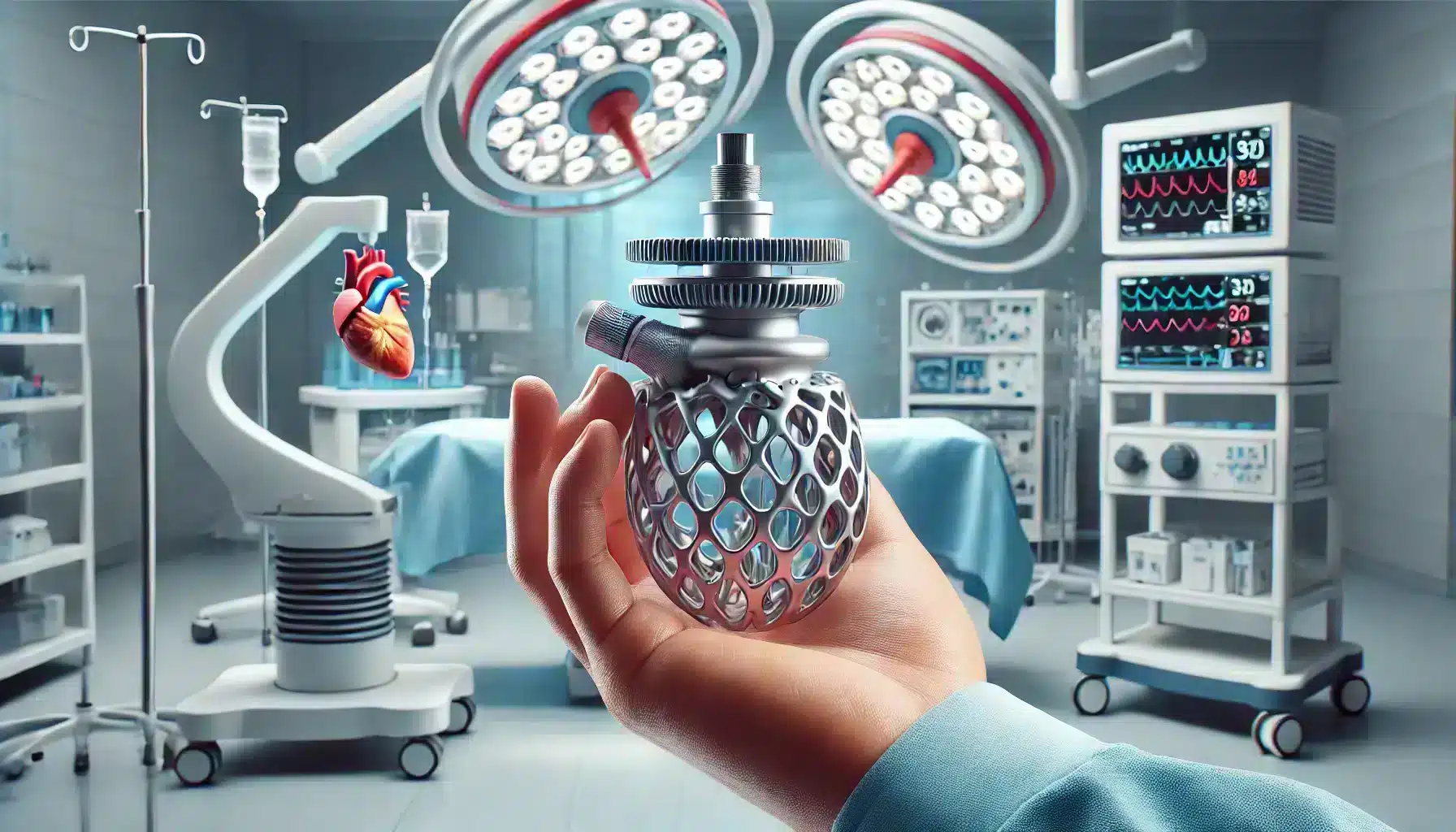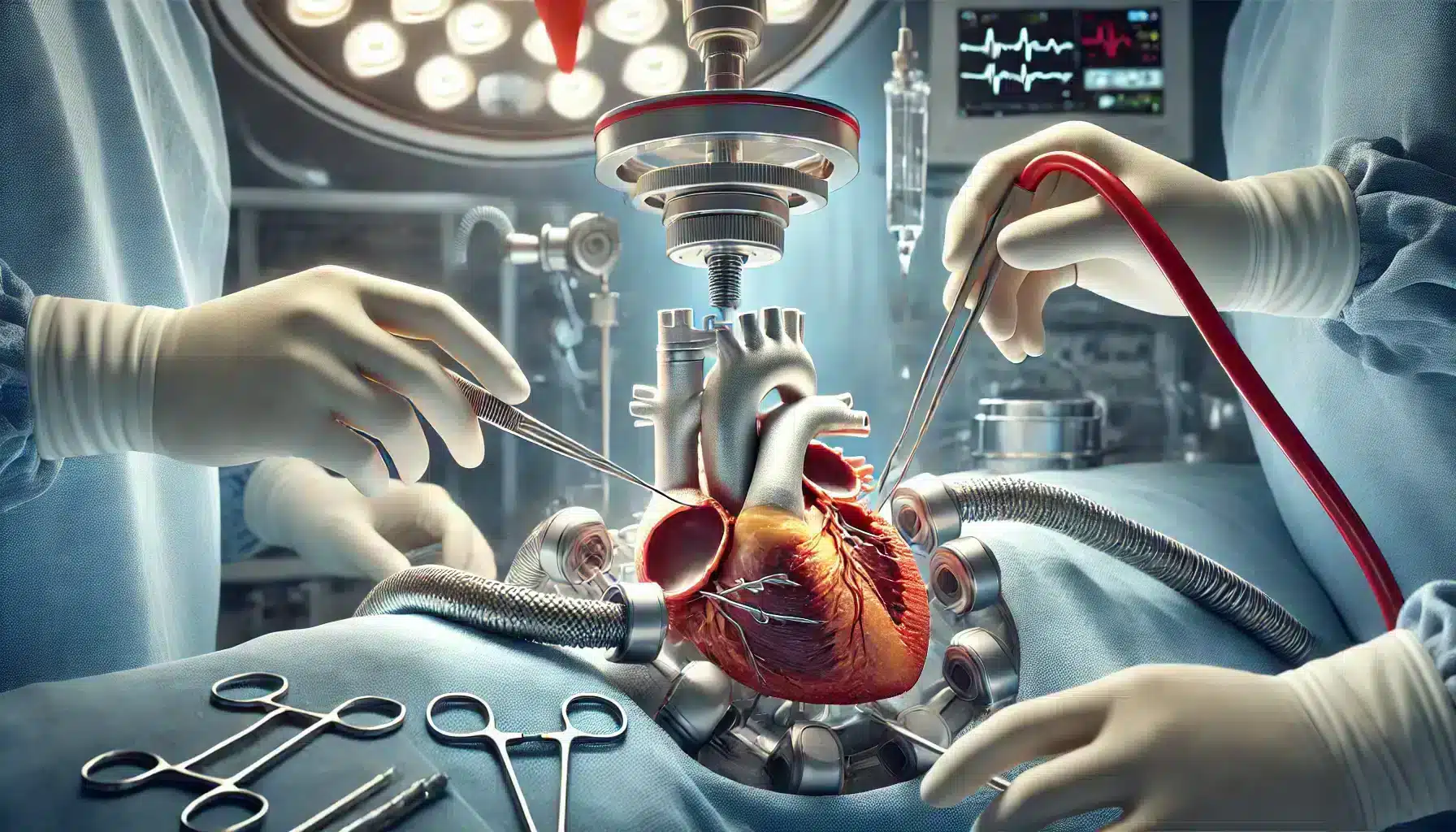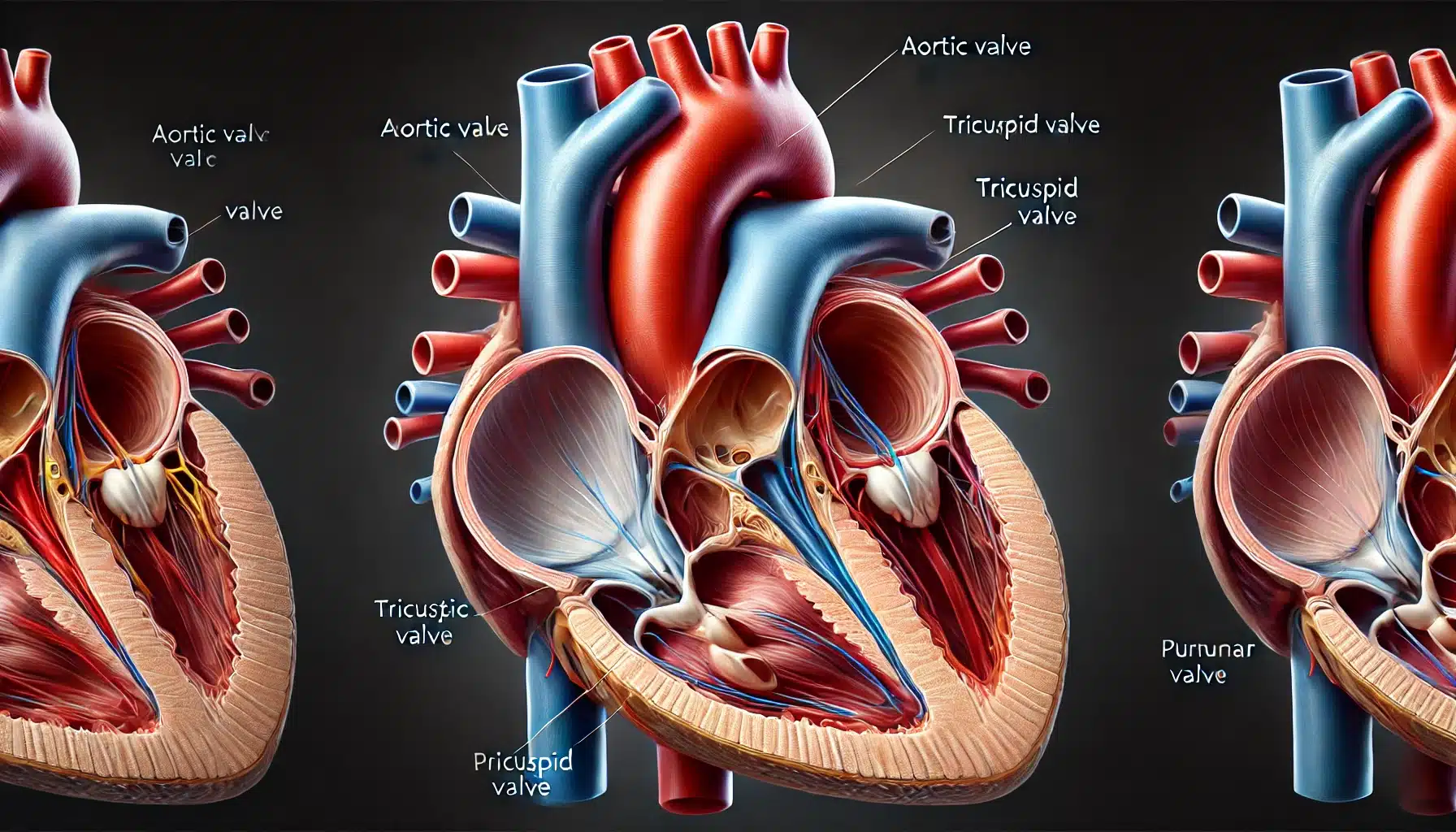What is a Mechanical Heart Valve?
A mechanical heart valve is a prosthetic device implanted in patients whose natural heart valves are no longer functioning properly. These valves are typically made from durable materials like carbon, titanium, or other biocompatible metals, designed to mimic the function of natural heart valves. Unlike biological valves, mechanical heart valves are engineered to last for a long time, often exceeding 20 years, making them a popular choice for younger patients who require valve replacement surgery.
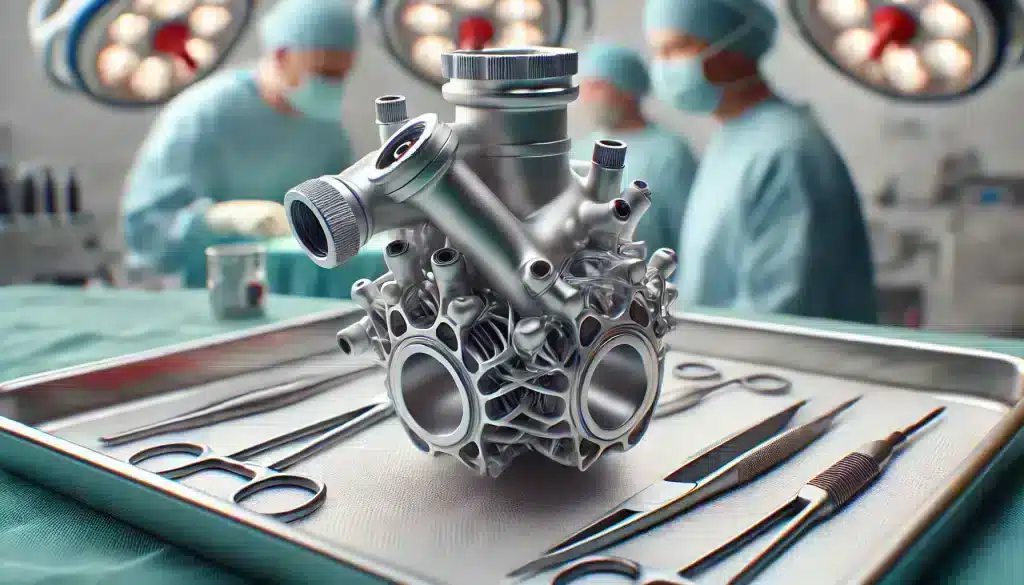 Mechanical Heart Valve Care
Mechanical Heart Valve Care
Mechanical heart valves are used to treat conditions such as valve stenosis, where the valve doesn’t open properly, or valve regurgitation, where the valve doesn’t close fully, allowing blood to flow backward. By replacing the faulty valve, mechanical heart valves help restore normal blood flow through the heart, improving the patient’s overall cardiovascular health.
- Durable materials such as carbon and titanium are used.
- Designed for long-term use, with some valves lasting over 20 years.
- Helps treat conditions like stenosis and regurgitation.
Types of Mechanical Heart Valves
There are several types of mechanical heart valves, each with its own design and specific advantages. The most common types are bileaflet valves, monoleaflet valves, and caged-ball valves. Each of these valve types operates in a slightly different manner, but all aim to replicate the function of the heart’s natural valves, allowing blood to flow in one direction and preventing backflow.
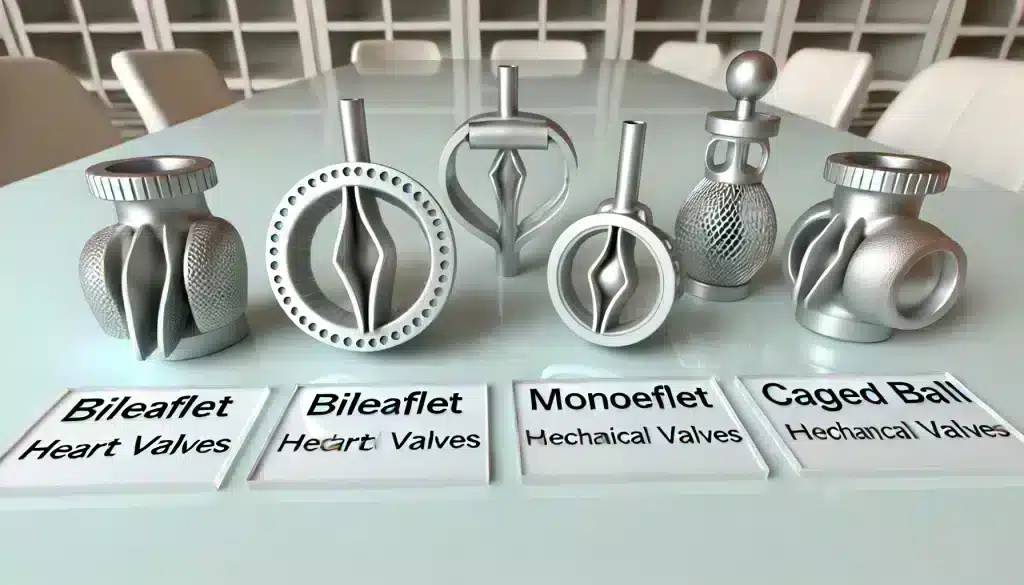 Mechanical Heart Valve Care
Mechanical Heart Valve Care
Bileaflet Valves
Bileaflet valves are the most commonly used type of mechanical heart valve. They consist of two semicircular leaflets that open and close to control blood flow. These valves are known for their efficient hemodynamics, meaning they allow blood to flow more smoothly with minimal resistance. Due to their design, bileaflet valves have a lower risk of causing blood clots compared to other types, but patients still require anticoagulation therapy.
Monoleaflet Valves
Monoleaflet valves have a single disk that tilts open and closed. Although less commonly used today, they were one of the earliest designs of mechanical valves. The simplicity of the design makes them durable, but their hemodynamics are less favorable compared to bileaflet valves, and they may cause more turbulence in blood flow, increasing the risk of blood clots.
Caged-Ball Valves
Caged-ball valves were among the first mechanical heart valves to be widely used. They feature a metal cage that houses a silicone ball. When the heart pumps, the ball moves within the cage to open and close the valve. These valves are no longer commonly used due to their bulky design and the higher risk of blood clot formation. However, they are still present in some long-term patients who received these implants decades ago.
- Bileaflet valves: Most commonly used with two leaflets, providing smooth blood flow.
- Monoleaflet valves: Early design with a single disk, less efficient than bileaflet valves.
- Caged-ball valves: Early mechanical valve, no longer widely used due to bulk and clot risks.
How Long Do Mechanical Heart Valves Last?
Mechanical heart valves are designed to be highly durable and can last for decades. In fact, one of the primary advantages of mechanical valves over biological valves is their longevity. Most mechanical heart valves can function properly for 20 years or more, and many patients live with the same valve for the rest of their lives without needing a replacement.
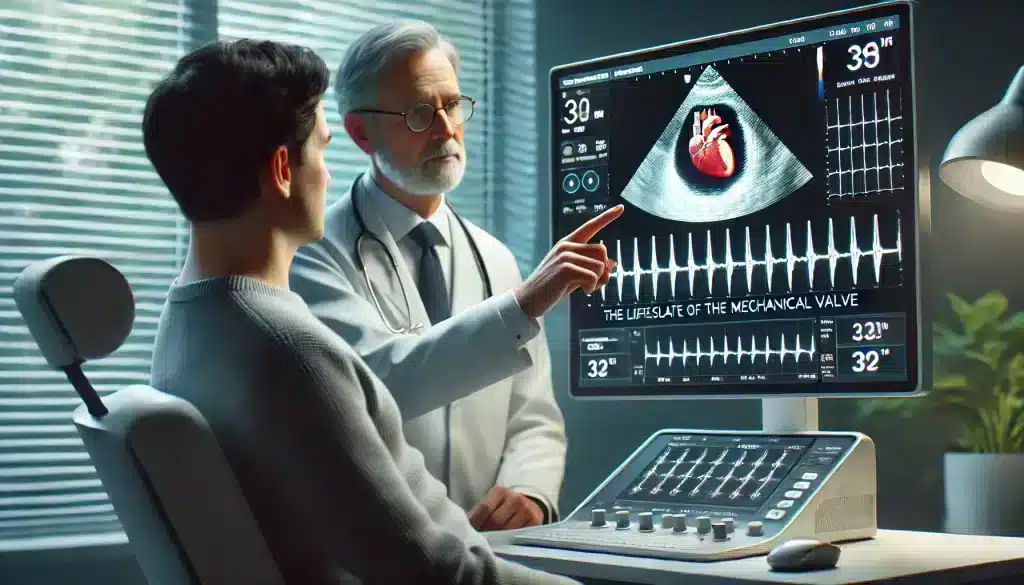 Mechanical Heart Valve Care
Mechanical Heart Valve Care
However, the lifespan of a mechanical heart valve can be influenced by several factors, including the patient’s overall health, adherence to medication and lifestyle recommendations, and the specific type of valve used. Regular follow-ups and medical care are essential to monitor the valve’s performance and to detect any potential complications early.
Factors That Affect the Durability of Mechanical Valves
There are several factors that can impact how long a mechanical heart valve lasts, including:
- Patient’s age and health: Younger patients generally experience better long-term outcomes with mechanical valves since the valve is designed to last a lifetime.
- Type of valve: Different designs, such as bileaflet or monoleaflet, may have varying levels of durability and efficiency.
- Anticoagulant management: Proper anticoagulation therapy is critical to reducing the risk of blood clots, which can affect valve longevity.
- Lifestyle factors: A healthy lifestyle that includes balanced nutrition, regular physical activity, and avoidance of smoking or excessive alcohol consumption can contribute to the valve’s durability.
In general, mechanical heart valves require lifelong medical management, but their durability makes them an excellent option for long-term heart valve replacement.
The Importance of Regular Monitoring
After receiving a mechanical heart valve, regular monitoring is crucial to ensure that the valve continues to function properly and that potential complications are detected early. Routine checkups and diagnostic tests allow doctors to assess the condition of the valve and monitor the patient’s overall heart health. By staying proactive, patients can avoid serious complications and maintain a better quality of life.
 Mechanical Heart Valve Care
Mechanical Heart Valve Care
Monitoring typically includes regular visits to a cardiologist, who will conduct various tests to evaluate the mechanical heart valve’s performance. Additionally, monitoring helps ensure that anticoagulant therapy is working effectively to prevent blood clots, a common risk associated with mechanical valves.
Routine Medical Checkups for Heart Valve Health
Patients with mechanical heart valves should expect to undergo frequent checkups, especially in the first few years after surgery. These appointments may include:
- Physical exams: Regular physical exams allow doctors to listen to the heart and check for any unusual sounds that might indicate valve problems.
- Blood tests: These tests are used to measure the effectiveness of anticoagulant medication, ensuring that the blood remains thin enough to prevent clotting but not so thin as to cause excessive bleeding.
- Imaging tests: Echocardiograms and other imaging tests help visualize the valve’s movement and detect any structural issues or obstructions.
Diagnostic Tests to Monitor Valve Function
In addition to regular physical exams, patients will likely undergo a variety of diagnostic tests to monitor the mechanical heart valve’s function. These include:
- Echocardiogram: An ultrasound of the heart that provides images of the valve’s movement and can detect any abnormal blood flow patterns.
- Electrocardiogram (ECG): A test that measures the electrical activity of the heart to check for irregular heart rhythms or other abnormalities.
- CT scan or MRI: These imaging tests provide detailed views of the heart and surrounding structures, helping doctors assess the overall condition of the valve.
Regular monitoring ensures that any potential issues are addressed early, reducing the risk of complications and ensuring the long-term success of the mechanical heart valve.
Medication and Anticoagulant Therapy for Mechanical Heart Valve Patients
One of the most important aspects of caring for a mechanical heart valve is managing the use of anticoagulant medications. These medications help prevent the formation of blood clots, which is a common risk for individuals with mechanical valves. Since mechanical valves are made from materials that can interact with blood cells and increase clotting, lifelong anticoagulant therapy is essential for maintaining valve function and reducing complications.
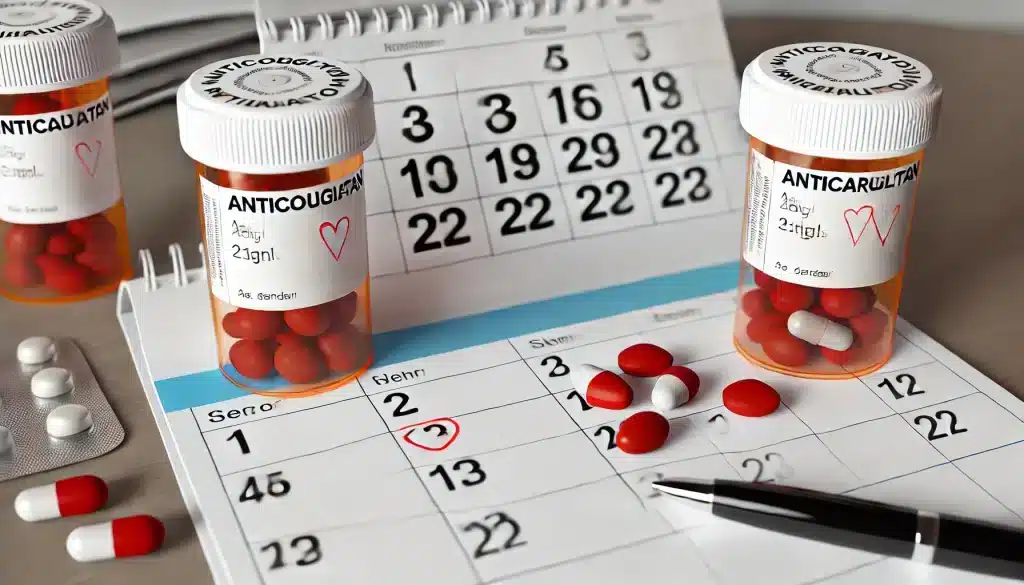 Mechanical Heart Valve Care
Mechanical Heart Valve Care
Anticoagulants, also known as blood thinners, do not actually “thin” the blood, but rather decrease its ability to clot. For patients with mechanical heart valves, anticoagulant therapy is typically required for life, and the dosage must be carefully monitored to ensure it remains effective without increasing the risk of bleeding.
Why Anticoagulants Are Necessary for Valve Health
Mechanical heart valves, while durable and long-lasting, have a rougher surface compared to natural heart valves. This rough surface can cause blood cells to accumulate and form clots, especially in areas where the blood flow is slower. If these clots break free, they can travel to other parts of the body, potentially causing strokes or other life-threatening conditions. Anticoagulants help to reduce the likelihood of clot formation by keeping the blood in a state where it flows smoothly and doesn’t stick to the valve surfaces.
Common Anticoagulant Medications and Their Use
The most commonly prescribed anticoagulant for mechanical heart valve patients is warfarin. Warfarin requires regular monitoring through blood tests (such as the International Normalized Ratio, or INR) to ensure that the dosage is keeping the blood at the desired level of clotting. Other newer anticoagulants are sometimes prescribed, but warfarin remains the gold standard due to its effectiveness and the ability to adjust doses easily based on INR results.
Patients on anticoagulant therapy must adhere to a strict medication regimen and attend regular follow-up appointments to monitor their blood levels. Missing doses or incorrect dosing can lead to dangerous complications, including the formation of clots or excessive bleeding.
- Warfarin: The most commonly used anticoagulant, requiring regular INR monitoring.
- Newer anticoagulants: Other medications that may be used but require different monitoring protocols.
- Regular blood tests: INR tests are necessary to adjust medication dosages as needed.
Managing Risks and Complications
While mechanical heart valves offer long-term durability, there are potential risks and complications that patients need to be aware of. Some of the most common issues include blood clots, valve malfunction, and infections. Proper management and early detection of these complications can help reduce the risk of serious health problems.
 Mechanical Heart Valve Care
Mechanical Heart Valve Care
Mechanical valve recipients must be vigilant in monitoring their health and adhering to their prescribed anticoagulant therapy to prevent the most common complications associated with these devices. Below are some of the most critical risks and how to manage them effectively.
Recognizing Early Signs of Valve Failure
Mechanical heart valves are designed to last a long time, but like any medical device, they can experience wear and tear over time. It’s crucial to recognize the early signs of valve failure to prevent more serious complications. Common symptoms of valve failure include:
- Shortness of breath: Difficulty breathing may indicate that the valve is not functioning properly, causing blood to back up into the lungs.
- Fatigue: If the valve is not allowing proper blood flow, patients may feel excessively tired or weak.
- Irregular heartbeats: Palpitations or irregular heart rhythms could signal a problem with the mechanical valve.
- Swelling: Fluid retention in the legs or abdomen could indicate heart failure caused by a malfunctioning valve.
Any of these symptoms should prompt an immediate visit to a healthcare provider for evaluation, as they may indicate the need for further diagnostic tests or interventions.
Risks of Blood Clots and How to Prevent Them
The most significant risk for patients with mechanical heart valves is the formation of blood clots. If a blood clot forms on the valve or within the heart, it can travel through the bloodstream and potentially cause a stroke, heart attack, or other life-threatening complications. Anticoagulant therapy is the primary method of reducing the risk of clot formation, but there are other preventive measures as well:
- Consistent anticoagulant therapy: Ensuring proper anticoagulant dosage and adhering to regular INR testing is crucial for preventing clots.
- Healthy lifestyle: Regular exercise, a balanced diet, and avoiding smoking and excessive alcohol consumption can help reduce clotting risks.
- Avoiding injury: Patients on anticoagulant therapy must be cautious about activities that may cause injury, as they are at a higher risk for excessive bleeding.
- Close monitoring: Regular checkups and blood tests will help detect any issues early and allow for timely adjustments to therapy.
By managing these risks effectively, patients with mechanical heart valves can reduce the likelihood of serious complications and maintain a good quality of life.
How to Maintain a Healthy Lifestyle After Mechanical Valve Replacement
Maintaining a healthy lifestyle is crucial for patients who have undergone mechanical heart valve replacement. Adopting healthy habits can not only improve the overall quality of life but also reduce the risk of complications associated with mechanical valves, such as blood clots and heart failure. After surgery, patients are encouraged to follow specific guidelines regarding diet, physical activity, and other aspects of daily life to ensure their long-term health and the proper functioning of the mechanical valve.
 Mechanical Heart Valve Care
Mechanical Heart Valve Care
Dietary Recommendations for Valve Patients
Diet plays a key role in maintaining the health of mechanical heart valve patients, especially because certain foods can interact with anticoagulant medications like warfarin. For example, foods rich in vitamin K, such as leafy green vegetables, can decrease the effectiveness of anticoagulants, so it’s important to maintain a consistent intake of these foods rather than avoiding them entirely.
In addition to monitoring vitamin K intake, patients should also focus on heart-healthy foods that promote cardiovascular health, including:
- Fruits and vegetables: A diet rich in a variety of fruits and vegetables helps provide essential nutrients and fiber while reducing cholesterol levels.
- Whole grains: Whole grains like oats, brown rice, and quinoa are excellent sources of fiber, which can help manage cholesterol and blood pressure.
- Lean proteins: Incorporating lean proteins such as fish, poultry, and legumes can promote heart health without adding excessive saturated fats.
- Healthy fats: Foods like nuts, seeds, and avocados provide healthy fats that are beneficial for heart health.
Patients should also limit their intake of processed foods, sodium, and unhealthy fats, which can contribute to high blood pressure and other heart-related issues.
Exercise and Physical Activity Guidelines
Staying physically active is another important part of managing heart health after a mechanical valve replacement. Regular exercise can help improve cardiovascular fitness, maintain a healthy weight, and reduce stress levels, all of which contribute to better long-term outcomes for heart valve patients.
However, patients should consult with their doctor before starting any new exercise regimen. Some general recommendations include:
- Aerobic exercise: Activities such as walking, swimming, or cycling are great ways to improve heart health without putting too much strain on the body.
- Strength training: Light strength training exercises can help maintain muscle tone and overall body strength but should be done carefully to avoid injury.
- Stretching and flexibility: Incorporating stretching exercises into a daily routine can improve flexibility and prevent injury.
- Avoiding high-impact sports: Patients should avoid high-impact or contact sports that could lead to injuries, especially because of the increased risk of bleeding while on anticoagulants.
Moderation and consistency are key when it comes to physical activity for heart valve patients, and any new symptoms or discomfort during exercise should be promptly reported to a healthcare provider.
Frequently Asked Questions (FAQ)
How Can I Reduce the Risk of Complications After Valve Surgery?
To reduce the risk of complications, it’s essential to adhere to prescribed anticoagulant therapy, attend regular medical checkups, and maintain a heart-healthy lifestyle, including a balanced diet and regular physical activity. Avoiding smoking, excessive alcohol consumption, and high-impact activities that could lead to injury are also important.
What Should I Do If I Miss a Dose of My Anticoagulant Medication?
If you miss a dose of your anticoagulant medication, it’s important to contact your healthcare provider for guidance. Do not double up on the next dose unless specifically instructed by your doctor, as this can increase the risk of excessive bleeding.
Are There Any Dietary Restrictions for Patients with Mechanical Heart Valves?
Yes, patients taking anticoagulants like warfarin need to be mindful of their vitamin K intake, as it can affect how the medication works. However, it’s more important to maintain a consistent level of vitamin K consumption rather than avoiding it completely. Focus on a heart-healthy diet that includes fruits, vegetables, whole grains, and lean proteins.
Can I Travel After Having a Mechanical Heart Valve?
Yes, patients with mechanical heart valves can travel, but it’s important to plan ahead. Ensure you have an adequate supply of medication, and be aware of how to access medical care at your destination if needed. It’s also a good idea to wear a medical ID bracelet that indicates you have a mechanical heart valve and are on anticoagulants.
How Often Will I Need to Have My INR Checked?
The frequency of INR testing can vary based on how stable your levels are. Initially, patients may need to have their INR checked more frequently, but once a stable range is established, testing may be needed less often. However, any changes in diet, medication, or health status may require more frequent testing.
